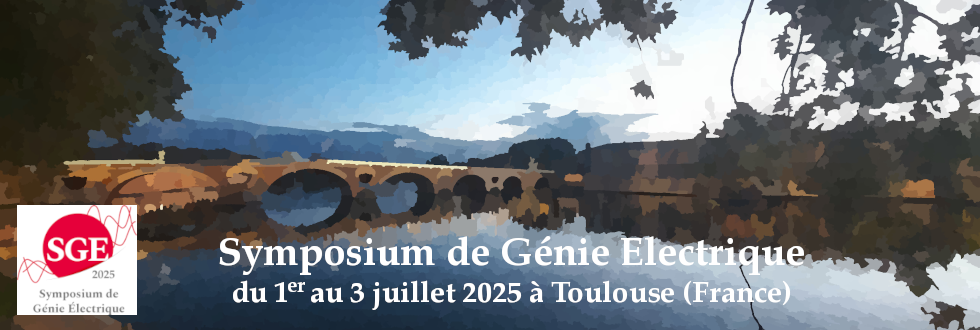Many thanks again to our guest speakers, covering the 3 themes of SGE: networks, conversion and materials. In addition, a round table is organized for the first time at SGE, that will addresse the question of gender equality. All plenary talks will be given in french.
Plenary 1: Energy pathways and prospects for the electricity network
July 1st at 9.30 am in the auditorium
Bio: Jérôme Pigat is Head of the Power System Perspectives Department within the Power System Economics Division at RTE. He was notably involved in the study on the evolution of the electricity system entitled ‘Energy Pathways 2050’.
Summary: France aims to be carbon neutral by 2050. This implies a shift from the use of fossil fuels to electricity, consumption of which is set to rise sharply. At the same time, the production of low-carbon electricity must increase, even though most of the current nuclear power plants are about to reach the end of their lifespan. What are the challenges of reindustrialisation and electrification? What contribution can new nuclear power and renewable energies make to meeting this challenge? What are the needs for adapting the electricity network and the challenges of operating it in this rapidly changing electricity system? These are the questions this presentation will address, against a backdrop of uncertainty where the issues of energy sovereignty and climate change are becoming increasingly important.
Plenary 2: Integration of HVDC systems in aeronautics - Stakes and Challenges
July 2nd at 9am in the auditorium
Bio: Alexis Renotte holds a doctorate in electrical engineering. After working on the A350 programme, to follow the development of the first ‘stater-generator’ integrated into an Airbus aircraft, he joined SAFRAN Electrical & Power in 2012, on R&D projects concerning innovative electrical systems (Reliable APU Electrical System, VTOL Propulsion System). In 2023, he joined SAFRAN TECH, the SAFRAN group's research centre, as head of the Electrical Systems Architecture team.
Summary: The integration of HVDC (800 Volts, Continuous) electrical systems into aircraft poses a number of technical challenges, to which solutions must be found, while minimising the impact on the mass of these systems. The increase in voltage, coupled with the altitude, generates increased risks of insulation degradation (partial discharges) that can lead to electrical arcing. Arc detection is therefore becoming an important component of HVDC systems. Isolated or pseudo-isolated operation is a good solution for minimising the mass of filters (particularly common mode filters). How can this isolated HVDC system be used in conjunction with a traditional 115VAC / 400Hz TN network? How can insulation losses be detected effectively, so that a fault does not remain hidden? Lastly, the definition of network quality constraints is still in its infancy for this type of network, which is why it is important to define the requirements for the network quality.
Plenary session 3 - Round table: How can we move towards effective gender equality in our universities and laboratories?
July 2nd at 2pm in the auditorium
Participants :
- Marie-Cécile Péra, Chair of Section 8 of the National Committee, Professor at the Université Marie et Louis Pasteur (Besançon), member of Femmes & Sciences
- Florence Sedes, IEEE Women In Engineering France Chair, Professor at the University of Toulouse and former Head of Corporate Social Responsibility at the University, member of the Board of Femmes & Sciences
- Matthieu Arbogast, Head of mission for the place of women at the CNRS (MPDF), member of the Haut Conseil à l'Egalité entre les femmes et les hommes (High Council for Equality between Women and Men).
Animated by Pauline Kergus et Antoine Picot
Summary: Women are under-represented in the scientific professions, and this imbalance is even more marked when it comes to management positions and career progression. Furthermore, scientific careers are not very attractive to women, whose career choices are also heavily influenced by gender stereotypes. The aim of this round table is to discuss how to combat these inequalities in higher education and research.
Plenary 4: High entropy alloys: future materials for solid hydrogen storage?
July 3rd at 11am in the auditorium
Bio: Claudia Zlotea is a CNRS research director in materials science at the Institut de Chimie et des Matériaux Paris-Est (ICMPE) in Thiais. Her current research focuses on high-entropy alloys for hydrogen storage and compression.
Summary: High entropy alloys show very promising performance for solid hydrogen storage. In particular, centred cubic alloys form hydrides with high storage capacity and tunable thermodynamics compared to conventional hydrides (MgH2). However, further destabilisation is still required to reduce operating temperatures. In this presentation, a strategy is proposed to effectively destabilise hydrides by starting with the TiVNb alloy and adding elements with low affinity for hydrogen (Al, Mo, Cr). In order to determine the most promising alloys in the vast field of possible compositions, this approach is based on predictions by machine learning (collaboration with Sandia National Laboratory), followed by modelling via density functional theory (collaboration with Nottingham University) and confirmed by experimental validation using a wide range of laboratory techniques and large instruments.


